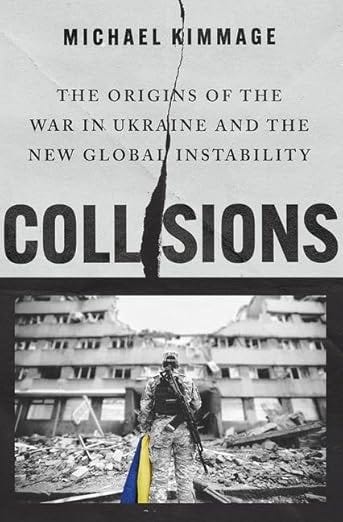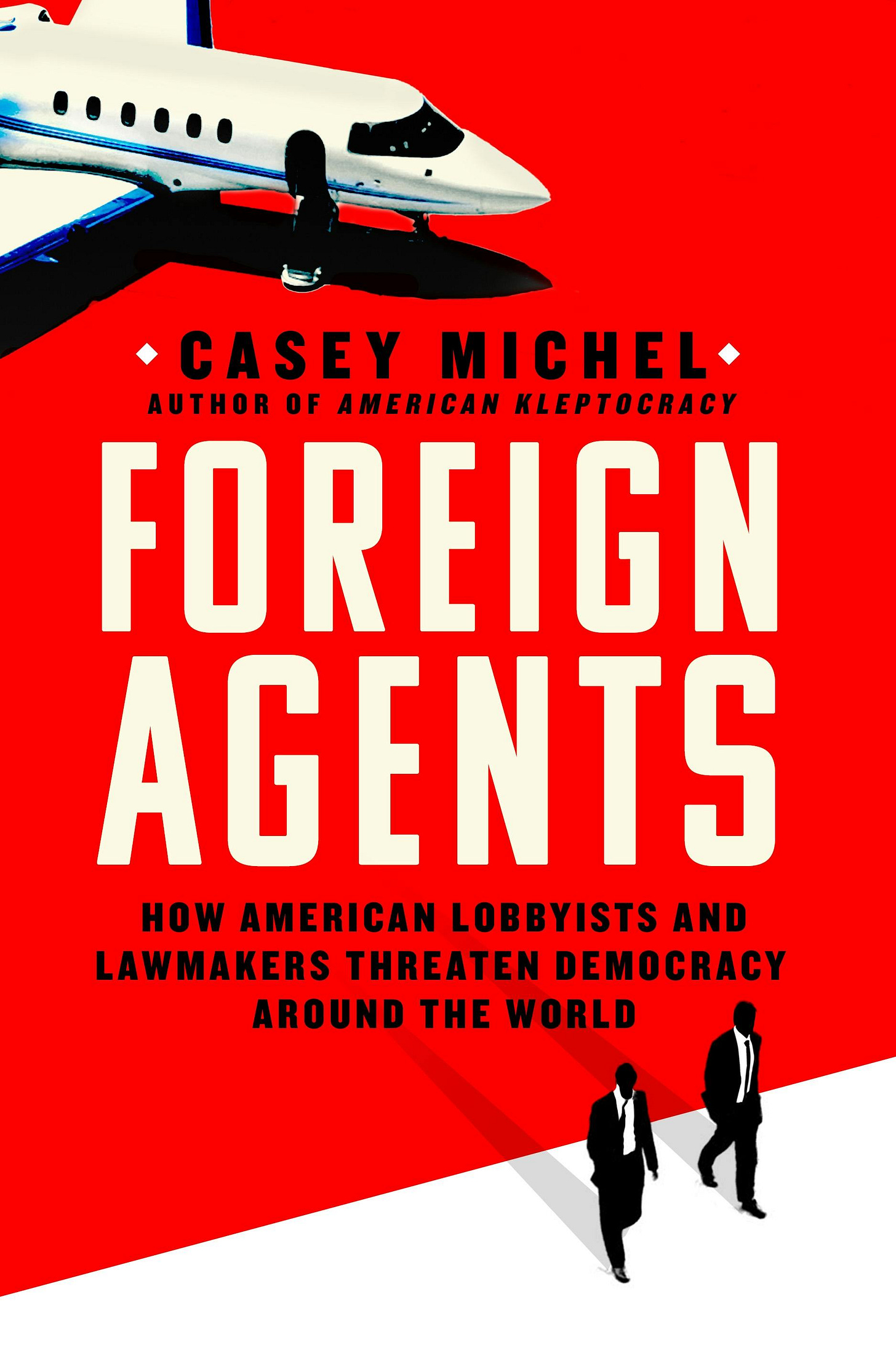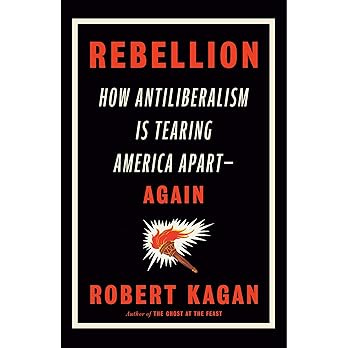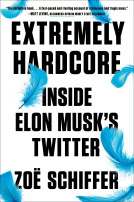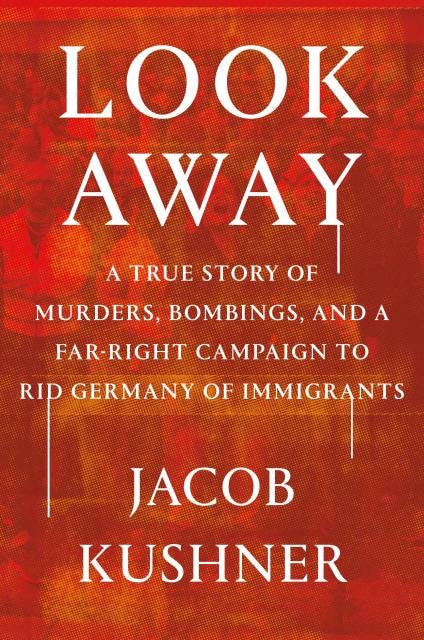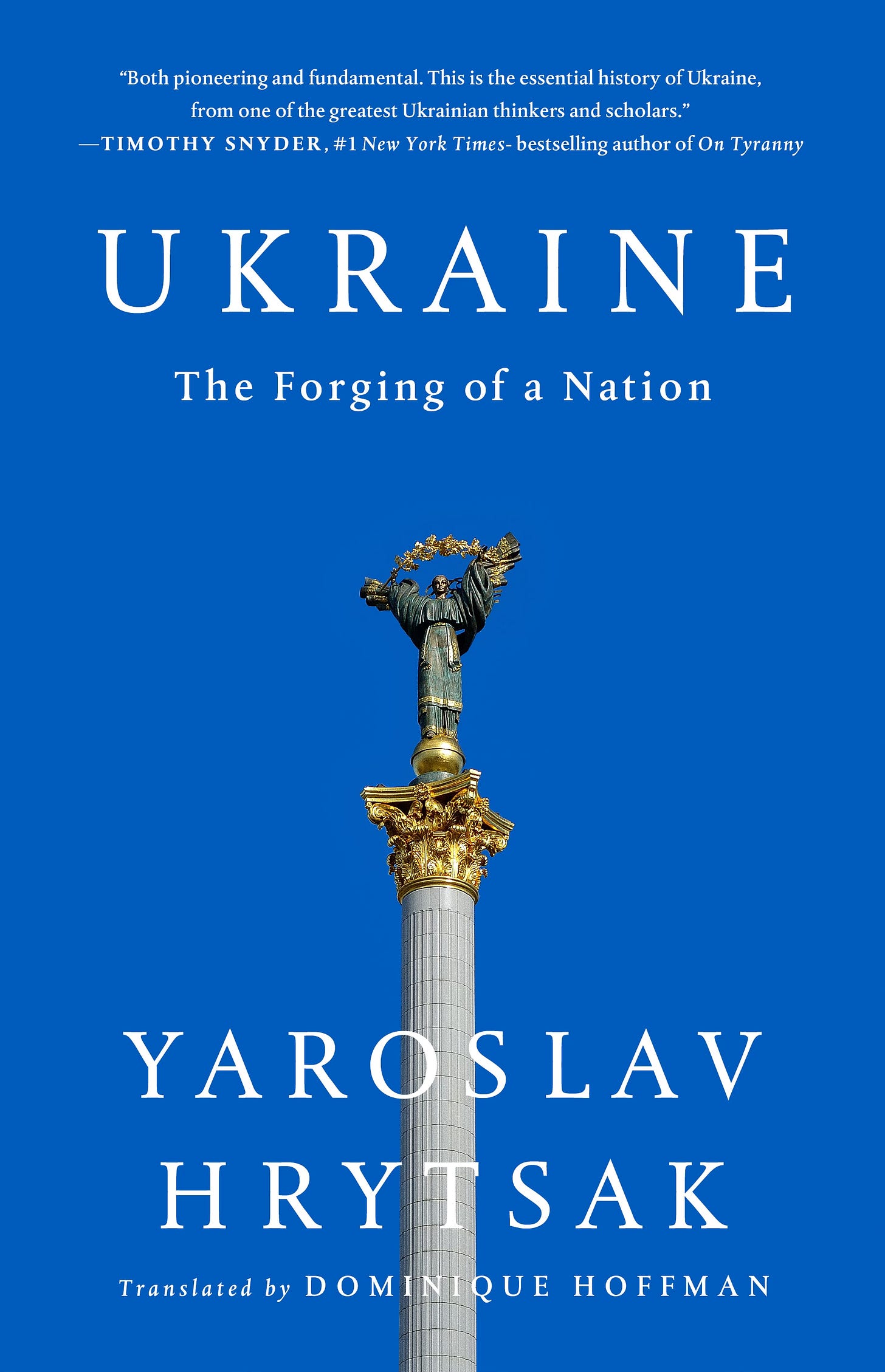7 Books of the Year 2024
If you don't want to read the news, read a book
Since Donald Trump was reelected as U.S. president, many people have told me that they do not want to read the news anymore. I sympathize. During his first term, I remember how his tweets dominated news cycles; even when I made a point of not looking at Twitter, his feuds with people like the hosts of MSNBC's "Morning Joe" were everywhere. However, you cannot replace something with nothing; if you are not going to read the news, then reading books offers a connection with the world beyond our ephemeral politics. As I did last year, I am listing (in no particular order) the best books I read from 2024.
Collisions: The Origins of the War in Ukraine and the New Global Instability by Michael Kimmage
Collisions traces Vladimir Putin's launch of the full-scale invasion of Ukraine in 2022 to the end of the Cold War. The book has been helpful for me in reexamining why I was wrong to think that the full-scale invasion of Ukraine was unthinkable: Kimmage details how the invasion was the collision of relations between Russia and Europe, Russia and the United States, and Russia and Ukraine. Kimmage, a Cold War historian and former State Department official, excels at summarizing the relationships between world leaders like Putin, Angela Merkel, Barack Obama, Donald Trump, and Emmanuel Macron. I felt like I knew the history of post-Cold War Europe very well, but his telling of it was fresh and contextualized developments over the past 10 years that I had only read in news articles.
Foreign Agents: How American Lobbyists and Lawmakers Threaten Democracy Around the World by Casey Michel
Foreign Agents, a work of history and investigative journalism, details an American industry whose participants would rather not be seen: the practice of lobbying for dictators and kleptocrats. This shadowy industry is one reason why many are so cynical about U.S. politics: the U.S. preaches democracy and freedom, but behind closed doors, American lobbyists whitewash authoritarians. Michel describes the work of Ivy Lee, a public-relations executive from the 1930s who advised the Nazis and worked to establish relations with the Soviets. The heart of the book is about Paul Manafort and his work for authoritarian leaders around the world, most notably Ukraine's former president, Viktor Yanukovych, who fled to Russia in 2014 during the Revolution of Dignity. Michel, a journalist and director of the Combating Kleptocracy Program with the Human Rights Foundation, is very good at telling the stories behind disclosures and court filings.
Rebellion: How Antiliberalism Is Tearing America Apart--Again by Robert Kagan
Rebellion traces the rise of Donald Trump through American history. It isn't a biography of Trump, but a history of the forces in American history that propelled his rise--racism, anti-immigrant sentiment, and a religious backlash to liberalism. Like Collisions, it takes a wide-angle view of history. I found Kagan's history of the Constitution and immigration to be particularly illuminating. He writes that the Constitution included liberal ideas, like the absence of state religion, but also the antiliberal institution of slavery; U.S. politics has rocked between liberalism and antiliberalism since its founding. Immigration is another area where the U.S. has rocked between extremes: in the early 20th century, the U.S. went from accepting millions of immigrants--especially from Southern and Eastern Europe--to very few, after the passage of the Immigration Act in 1924. Kagan, a former Republican who advised John McCain's presidential campaign in 2008, later made headlines in 2024 for resigning from the Washington Post Editorial Board after its owner, Jeff Bezos, spiked its endorsement of Kamala Harris.
Extremely Hardcore: Inside Elon Musk's Twitter by Zoë Schiffer
This book was reported and written before Elon Musk endorsed Donald Trump and spent millions to help him win, but I think it's instructive regarding what Musk might do as part of the proposed advisory board called the Department of Government Efficiency (DOGE). After buying Twitter, which he later renamed X, Musk proclaimed grand plans, instituted mass layoffs, eliminated entire departments, and the site turned into a wasteland full of misinformation. Similarly, DOGE aims to reduce the federal budget by $2 trillion (30 percent), and Musk has proposed cutting entire agencies and laying off federal employees. Schiffer, a technology journalist for Platformer, tells the bizarre story of the Twitter purchase with dozens of interviews from company insiders.
Germany in the World: A Global History, 1500-2000 by David Blackbourn
A strength of this 800-page book is that its chapters are self-contained; any one of them could be an interesting short book or long article. One of the parts of the book that I found most illuminating was the history of German influence on the United States. Not only does Blackbourn give great detail about 19th-century German immigrant communities, but he tells the story of how German ideas made their way into the U.S. An example is a detailed history of the founding of Johns Hopkins University in Baltimore, which was modeled after universities in Germany, particularly Heidelberg University. Much of German history is (rightfully) focused on the horrors of the 20th century; this book tells that story along with the ways that Germany influenced the world.
Look Away: A True Story of Murders, Bombings, and a Far-Right Campaign to Rid Germany of Immigrants by Jacob Kushner
Look Away tells the story of three teenagers from the city of Jena in former East Germany who became radicalized in the illegal underground neo-Nazi scene and carried out a series of killings and bombings of immigrants from 2000 until 2011. German authorities, until the very end, did not want to believe that white Germans were capable of carrying out the killings, and blamed--and even framed--immigrants themselves for the killings, thinking they were part of internecine conflict. While I am familiar with this story, Kushner's telling of it is particularly engrossing, and I kept on wanting to read more about the perpetrators, victims, and the communities which they hailed from.
Ukraine: The Forging of a Nation by Yaroslav Hrytsak, translated by Dominique Hoffman
Hrytsak, a historian who lives in Lviv, Ukraine, tells the history of Ukraine through geopolitical events like World War I, World War II, and the collapse of communism in 1989. He tells history in an accessible way, not focusing on dates, but events. The book was a bestseller in Ukraine during the current war, and it's easy to see why: he looks to the Ukrainian past to inform the future. He finds "limited but defensible optimism" in Ukrainian history; in an interview with Public Sphere earlier this year, he told me, "Ukrainians know what the past means."
There were some books that I didn't get to in 2024.


